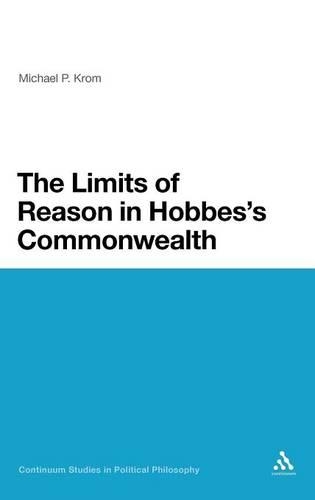
The Limits of Reason in Hobbes's Commonwealth
(Hardback)
Available Formats
Publishing Details
The Limits of Reason in Hobbes's Commonwealth
By (Author) Assistant Professor Michael P. Krom
Continuum Publishing Corporation
Continuum Publishing Corporation
6th October 2011
United States
Classifications
Tertiary Education
Non Fiction
Philosophical traditions and schools of thought
192
Physical Properties
Hardback
240
Width 156mm, Height 234mm
Description
The Limits of Reason in Hobbes's Commonwealth explores Hobbes's attempt to construct a political philosophy of enduring peace on the foundation of the rational individual. Hobbes's rational individual, motivated by self-preservation, obeys the laws of the commonwealth and thus is conceived as the model citizen. Yet Hobbes intimates that there are limits to what such an actor will do for peace, and that the glory-seeker - "too rarely found to be presumed on" - is capable of a generosity that is necessary for political longevity. Michael P. Krom identifies this as a fundamental contradiction in Hobbes's system: he builds the commonwealth on the rational actor, yet acknowledges the need for the irrational glory-seeker.
Krom argues that Hobbes's attempt to establish a "king of the proud" fails to overcome the limits of reason and the precariousness of politics. This book synthesizes recent work on Hobbes's understanding of glory and political stability, challenging the view that Hobbes succeeds in incorporating glory-seekers into his political theory and explores the implications of this for contemporary political philosophy after Rawls.Reviews
This book provides a lucid account of Hobbess political philosophy and a penetrating analysis of various central Hobbesian themes. It is a fine contribution to a crowded field of scholarship and a must-read for anyone interested in Hobbes and the enduring questions of how to provide a rational foundation for commonwealth. -- Kody W. Cooper, The University of Texas at Austin * American Catholic Philosophical Quarterly *
Author Bio
Michael P. Krom is Assistant Professor of Philosophy at Saint Vincent College, USA.
